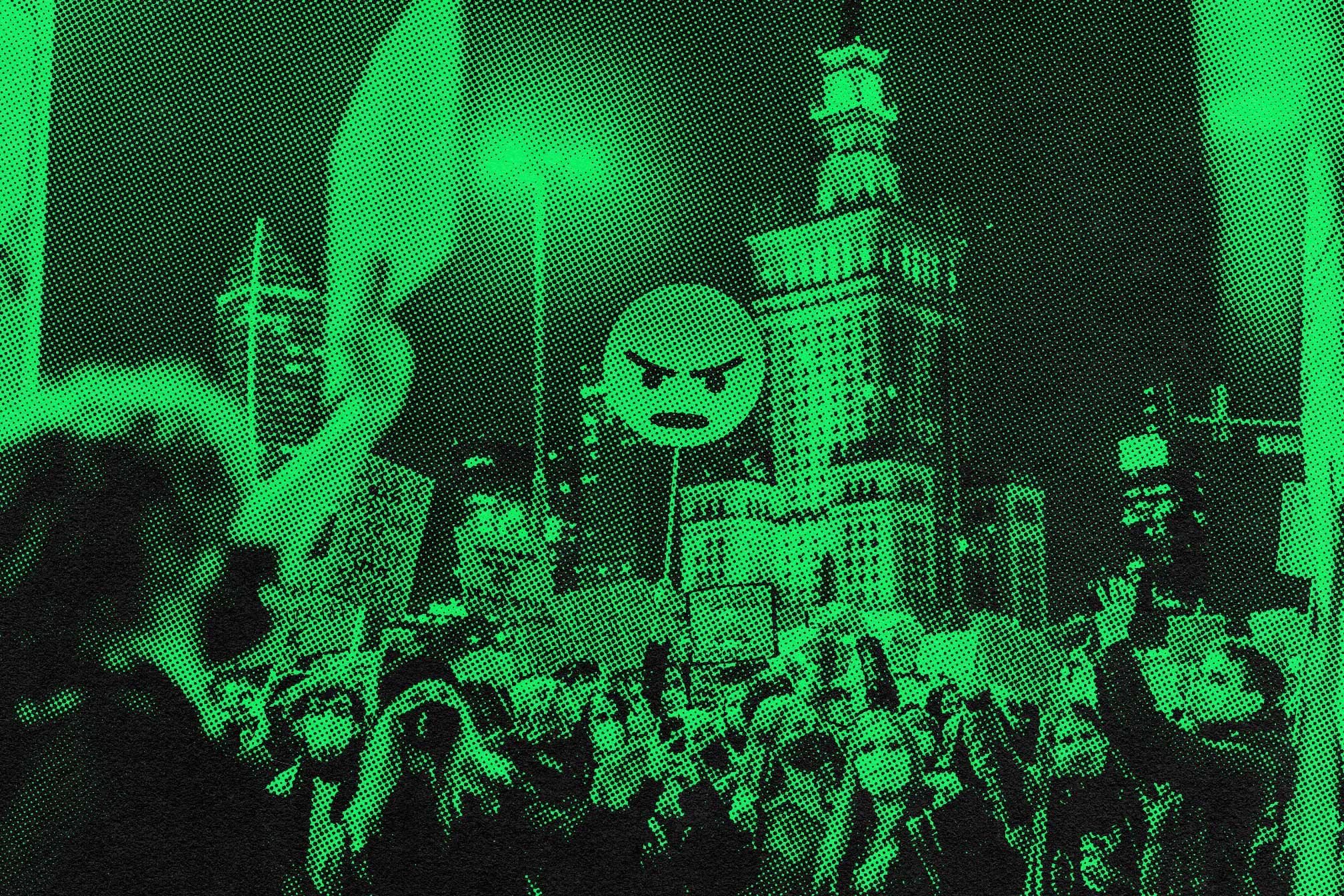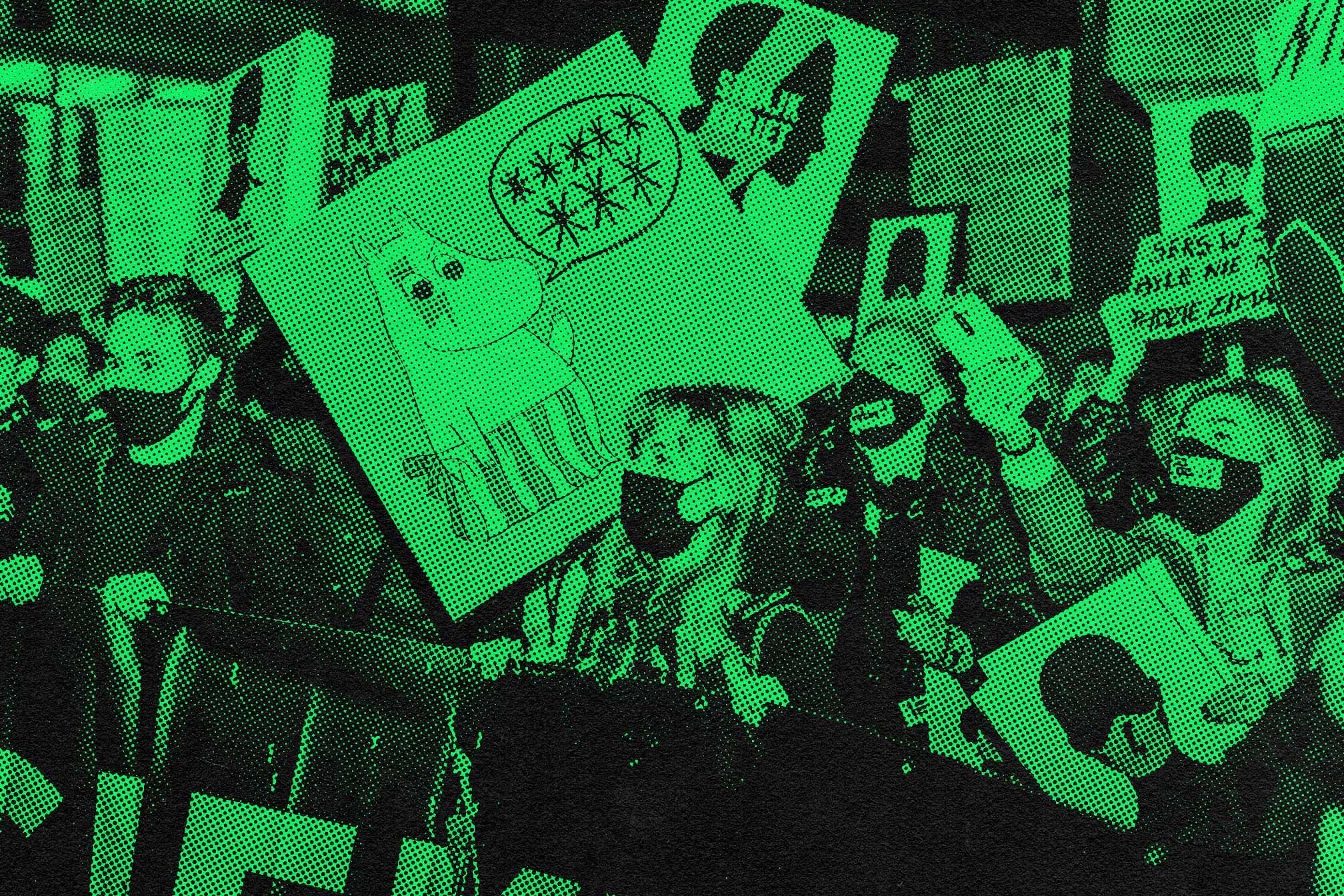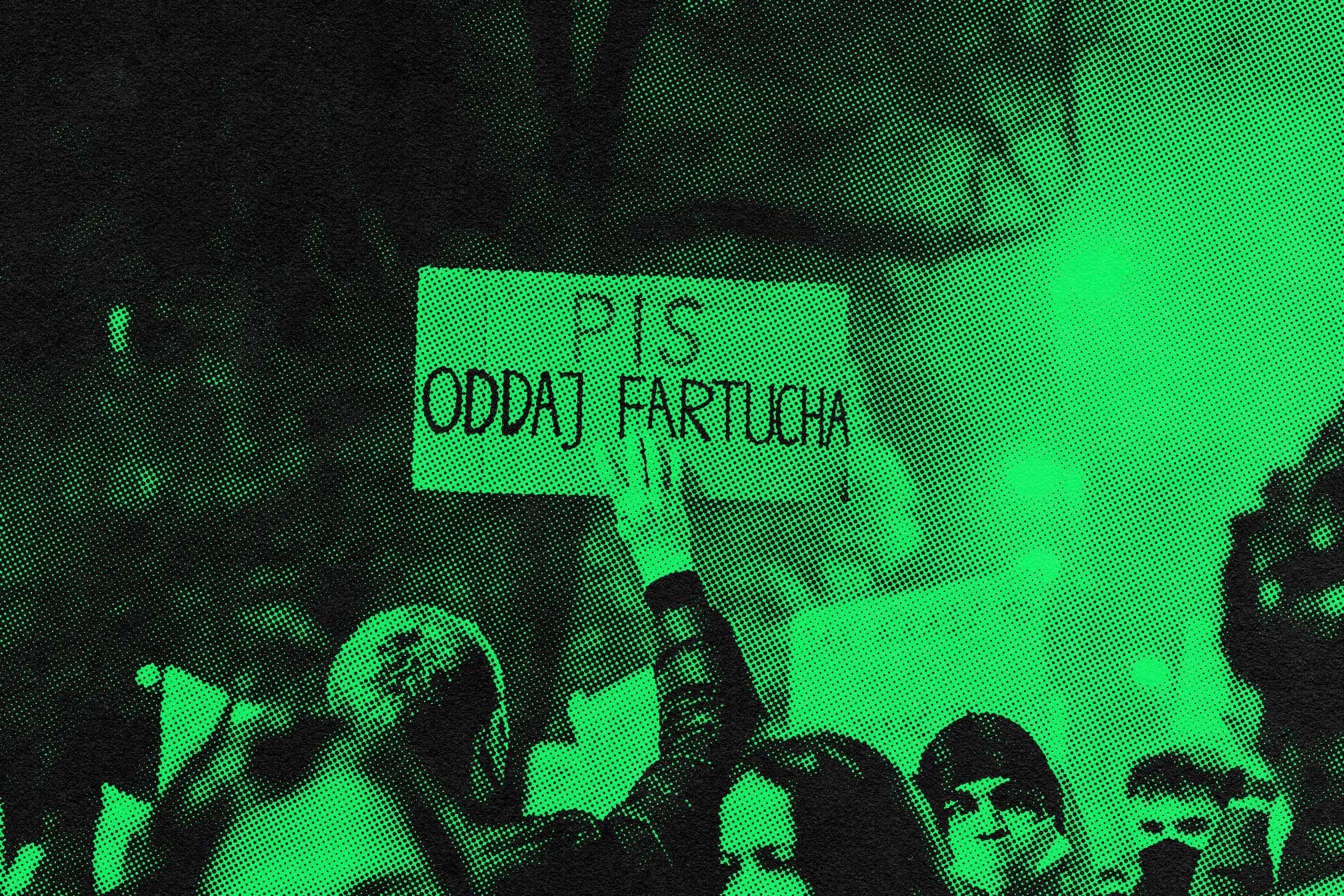 Features
Features
"Our music scares Nazis away": How Poland's DJs became activists fighting for LGBTQ+ and women's rights
Kamila Rymajdo meets the Polish DJs who are hitting the streets to fight the country's ruling right wing Law and Justice party
A lot has happened since one of the Polish club scene’s leading LGBTQ+ voices, Kajetan Łukomski, aka Avtomat, released ‘Ignorance Ha’ on Oramics’ 'Total Solidarity' compilation. Created for the inclusivity-minded collective to raise funds for grassroots LGBTQ+ organisations following violence at a 2019 Pride march in north-eastern Polish city Białystok, it was the first track he made “with the theme of queers being discriminated against in Poland.” Speaking to Mixmag over Zoom from Warsaw, he’s now released 'Gusła (Human Rites)', an EP that builds on the artistic response to that moment, that he describes as a “collective scream of a community put up against a wall.”
“[My track] ‘Ignorance Ha’ had a quote from a Polish MP saying that homosexual relationships were unproductive and they didn’t give anything to the country,” Avtomat continues, “but it seems like an almost neutral statement next to the other ones that have been uttered by politicians throughout the last year.”
Avtomat is right. Since the 'Total Solidarity' compilation, Poland has seen an unprecedented amount of civil unrest in reaction to the ruling populist right-wing Law and Justice party (PiS). Not only did they ramp up their anti-LGBTQ+ campaign in the lead up to the 2020 presidential elections, where following a very narrow race between Law and Justice incumbent Andrzej Duda and centrist Mayor of Warsaw Rafał Trzaskowski, Duda prevailed, but have most recently sparked the biggest protests since the Solidarity movement that ended communist rule. Starting in October 2020, the Strajk Kobiet [Women’s Strike] marches are a response to Law and Justice’s tightening of already extremely stringent abortion laws via a Constitutional Tribunal, a decision which came in the wake of the government’s controversial judicial reforms.
Read this next: Poland's club community is tackling homophobia and bigotry
Throughout it all, the voices of Poland’s underground club scene have been at the forefront of the resistance against Law and Justice. Avtomat himself was arrested last August following peacefully protesting the detainment of prominent LGBTQ+ activist Margot Szutowicz, and ‘techno protests’ have come to characterise the abortion rights marches of hundreds of thousands. Musicians and DJs from wide ranging corners of the club scene have also utilised social media to raise awareness and funds for activists protesting both attacks on the LGBTQ+ community and the near-total ban on abortion, which became law on 27 January 2021. “I think it’s a pretty natural process just based on how ubiquitous electronic music has become,” says Avtomat. “So many people right now are interested in that and doing something with it, that it was only a matter of time before a notable number of groups emerged who were interested in doing it in a more politically conscious way.”

But it wasn’t always like this, even in the recent past. Back in 2019, when Avtomat’s collective Oramics were putting together 'Total Solidarity', two techno promoters, Revive and Interior Festival, made public statements to the effect that politics has no place in the Polish club scene. University of Central Lancashire’s Professor Ewa Mazierska, author of 2020 book Popular Polish Electronic Music, 1970-2020: A Cultural History, agrees that Polish electronic music’s turn towards activism is a new phenomenon, explaining that “traditionally it wasn’t political in an obvious way. This was in a large part to differentiate itself from Polish rock of the 1980s, which was political, with many rockers protesting against the lack of political freedom in Poland, and in the later period, from Polish hip hop.” She continues, “Many electronic musicians found such overt politicising naive, parochial, and drawing attention away from ‘music as music’.” Instead, she says, “they wanted to communicate with people outside of Poland’s borders and explore new instruments, timbres and harmonies.”
Read this next: Monster is breaking down barriers for the Eastern European scene
What’s changed now, according to Oramics’ Paulina Trzeciak aka DJ dogheadsurigeri, is the fact that a new generation has come of age, for whom the optimism which followed Poland joining the European Union has never been part of their reality. “People who are 17 or 18 years old, who are protesting on the streets these days, are the people who were raised under the PiS ruling party and they can’t remember the celebration of being part of this hopeful time of democracy and values,” she says over Zoom from her current home in The Hague. As a result, she argues, this new group, “is much more radicalised.”

One such faction is Margot Szutowicz’s Stop Bzdurom [Stop Bullshit] collective, a queer feminist group formed in 2019 and fighting Poland’s homophobia and attacks on women’s rights via confrontational direct action – such as causing damage to a truck blaring out homophobic hate speech in Warsaw and covering religious statues with rainbow flags. Meanwhile, the Strajk Kobiet protests are characterised by the use of socially offensive language, with slogans not only protesting the government’s attacks on women’s rights, but also political institutions more widely as well as the Catholic Church.
Read this next: VTSS is energising techno
In turn, a new wave of promoters, DJs and musicians became galvanised to show their support in ever more public ways, seeing the potential for inspiring even more young people to become politically active. WIXAPOL, a 2012 formed neo-gabber collective from Warsaw whose strong online presence is inspired by chan culture and memes, went out on the streets for the first time as WIXAPOL during the Strajk Kobiet protests.

Formed by three friends who go by the aliases Torrentz.eu, DJ Sporty Spice and Mikouaj Rejw, WIXAPOL feel their music perfectly fits the anger of a new generation who they describe as “woke”. Scroll through their Instagram Stories and you’ll see countless videos of gabber blasting from a rainbow flag adorned float, and DJs and dancers energetically galvanising the crowds below. They report that their involvement in the Strajk Kobiet protests not only elevated the atmosphere but also played a key role in keeping protesters safe. “Our very hardcore music was kind of scaring away policemen and [counterprotesting] Nazis,” says Torrentz.eu, making reference to the violence that protesters were met with, while DJ Sporty Spice adds that music has added another dimension to the protests involving unprecedented amounts of young people: “Because of Covid people miss parties right now, and if you bring that familiar-ness of a club outside to the streets, it speaks their language.”
Read this next: The best Polish techno tracks
“There’s a couple of different components to the role of music in these protests,” says Avtomat. “The first thing is that it creates a sense of togetherness and energy that’s really hard to maintain during a protest if it’s only shouting. The second is using the platform to tell people who might be on the fence, that if we don’t do anything about it then nothing is going to happen; no one is going to do it for us.”

These developments within Poland’s club scene echo the role music has played in other pertinent protests which took place over the last year globally. While Black Lives Matter activists in Detroit blasted techno to the chanting of “No justice, no peace, fuck these racist police,” in cities like Washington DC Public Enemy’s 'Fight the Power' and other hip hop anthems became the soundtrack to the marches. Elsewhere in Eastern Europe, music has also played a role in anti-government protests. In Belarus activists denouncing President Alexander Lukasheno have adopted both rock and folk songs as their protest music, with the popular rock tune ‘Three Turtles’ becoming a staple at rallies while musicians from the National Philharmonic Orchestra have led protest flash mobs in subway stations and shopping centres.
But there’s a downside to your music continuously being viewed within the context of activism and protest, which perhaps explains why Poland’s first electronic musicians spurned politics from their output. “It’s been pretty hard on us as artists because this is the first and foremost thing that everybody asks us about; what we’re doing as a catalyst for social change, and our own art can get a little bit lost in it and nobody wants to talk about the music anymore,” says Avtomat, but adds, “On the other hand, what else can you do at such a time, you know?”

Indeed, the chief question now for Poland’s electronic music and club culture activists is how to sustain the momentum, as the Covid-19 pandemic continues to keep nightclubs shut and protest fatigue sets in. For Avtomat and dogheadsurigeri, these kinds of conversations were already at the forefront of Oramics’ third birthday celebrations, which took place online in July 2020. “It was this kind of moment where we realised we need to turn our head a bit more towards our region than looking upon what’s going on in Berlin, London or in Amsterdam,” says dogheadsurigeri. She cites a strengthening of the local scene through professionalisation of the industry, as key to ensuring the musicians’ activism continues to be impactful both home and further afield, name-checking the Kraków booking agency Granko and Tańce, the label from former Unsound curator Łukasz Warna-Wiesławski, which released Avtomat’s EP, as leaders in this new turn.
Avtomat says that drawing inspiration from and keeping an intellectual dialogue with the new generation of activists, is also important. His EP is testament of this interconnectivity as tracks such as ‘Stop Bzdurom'/'The Bad Gays’ nod to recent events – the sampled engine noises are a reference to the trucks spouting anti-LGBTQ+ propaganda and his arrest protesting the detainment of Szutowicz. “The younger people who are very much not willing to compromise anymore, have taught me that it’s important to express this raw emotion, this anger again,” he says. Perhaps then, this new generation are the clue to not only how the future of Polish activism will look like, but also how Poland’s protest music will sound as well.
Kamila Rymajdo is a freelance journalist and regular contributor to Mixmag. Follow her on Twitter



